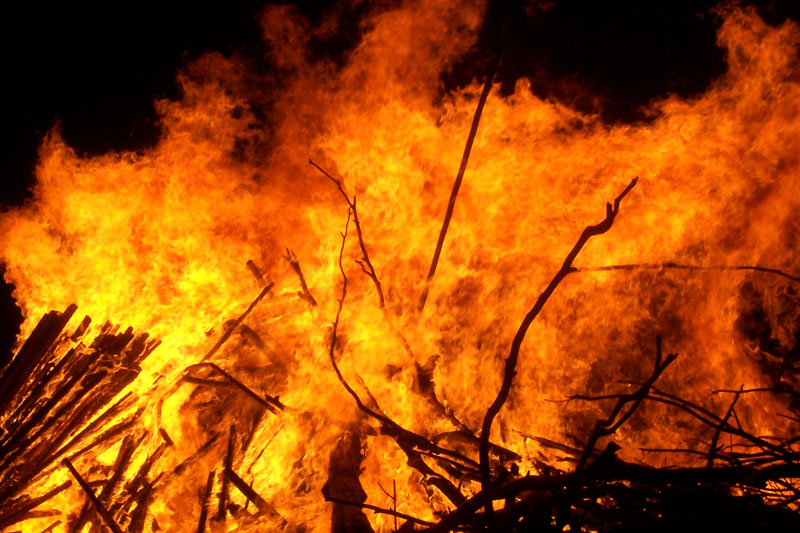You can't douse a pile of burning wood with just a glass of water(杯水車薪)
(Li Er) is one of the most famous thinkers
and philosophers in China. Later generations called him (Lao Tzu).
He wrote a book, which is the famous Tao Te
Ching.
He has a student named (Wen Tzu).
The student wrote a book in which many of
his words are recorded.
There is a passage in this book.
A hammer can strike anything but it cannot
strike itself.
We can see distant objects, but we cannot
see our own eye sockets.
A high mountain will make people feel safe
and stable, and there will naturally be fish and turtles in a large pond.
A small pond will overflow when it
encounters a heavy rain, and it will dry up when it encounters a drought.
But the water of the sea is not like that.
A turtle has no ears but his eyes are
bright, a blind man cannot see but his ears are good at listening.
Is cloudy water just for washing feet? Does
clean water have to be used only for washing hair?
A good piece of cloth, we can use to make
hats or socks.
Will the cloth become more noble if it is
made into a hat and worn on the head?
Will the cloth become less noble if it is
made into socks and worn on the feet?
Metal can overcome wood, but a knife cannot
cut down a forest.
Soil can restrain water, but a handful of
soil cannot block a river;.
Water can suppress fire, but a glass of
water cannot put out a pile of burning wood.
This idiom is used to describe a person who
wants to solve a problem but his ability is too small.
Dear friends, what inspiration or thoughts
do you have after listening to this story?
Do you only see the advantages of others
but not your own? How do you determine whether a person is noble, because of
his status or because of his morals?
I'm expecting this story to give you
something new to gain?
杯水車薪(You can't douse a pile of burning
wood with just a glass of water)
(李耳)是中國最著名的思想家與哲學家之一。後人尊稱他為(老子)。
他寫了一本書,這本書就是著名的道德經。
他有一個叫做(文子)的學生。
這個學生寫了一本書,這本書中記錄了許多他的話。
這本書中有一段話。
一隻鎚子可以敲擊任何物體但它卻無法敲擊自已。
我們可以看見遠處的物體,但是我們卻看不見自已的眼眶。
一座高山會使人感到安全而且穩定, 一個大的池塘裏面自然會有魚鱉出現。
一個小水塘若是遇到一場大雨就會滿溢,遇著乾旱又會枯乾,。
但是大海的水卻不會如此。
鱉沒有耳朵而眼睛卻是明亮的, 瞎子眼睛看不見但他的而耳朵善於傾聽。
混濁的水就只能用來洗腳嗎? 乾淨的水就一定只能用來洗頭嗎。
一塊上好的布,我們可以拿來做成帽子或是襪子。
做成帽子戴在頭上,這塊布就會變得比較高貴嗎。
做成襪子穿在腳上,這塊布就會變得比較不高貴嗎。
金屬可以剋制木頭, 但是一把刀不能砍伐一片森林。
泥土可以剋制水, 但是一把尼土不能堵塞一條河;。
水可以剋制火, 但是一杯水不能澆滅一堆正在燃燒的木頭。
這句成語被用來形容一個人想解決一個問題但這個人的能力太小。
親愛的朋友,你聽完這個故事有怎樣的啟發或有怎樣的想法呢。
你是否只看見別人的優點卻看不見自已的長處呢?你如何認定一個是否高貴呢,因為他的身分還是因為他的道德呢?
我期待這故事能讓你產生一些新的收穫?
出處為文子-上德
https://ctext.org/wenzi/shang-de/zh
出處為通玄真經-上德
https://www.mianfeiwendang.com/doc/6087a27a6a968d291ce24f3f/19
